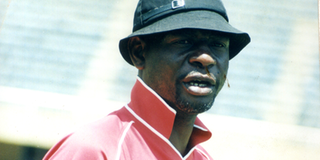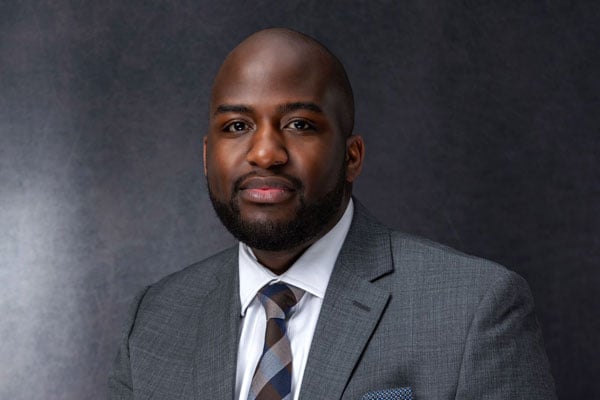Prime
Paul Hasule ‘V8’ was a super captain

Hasule conducts a Cranes training session during his short stint as head coach in 2003.
What you need to know:
HASULE FACT FILE
- Won. Eight league titles with SC Villa (1982, 1984, 1986, 1987, 1988, 1989, 1990 & 1992) and four Uganda Cups (1983, 1986, 1988 and 1989).
- Led. Villa to the 1987 Cecafa Club Championship.
- Captained Uganda to two Cecafa titles (1989 & 1990)
- Uganda Cranes. Skipper for four years (1988-1992) and Villa captain for eight years (1985-1993).
- As a coach. He won four league titles with Villa (1998, 1999, 2000 & 2001) and two Kakungulu Cups (1998 & 2000).
- Other clubs. He also coached State House, Simba and Police.
- Briefly. He coached Uganda Cranes in 2003.
- Voted. Uspa Footballer of the Year in 1992 and had an advancing coaching certificate from Germany.
- Survived. By a widow and four children.
“He was never mechanical at all. He was a true footballer, a thinking footballer, he would defend, dribble, pass and score,” those are the words of KCC and Uganda Cranes legend Tom Lwanga describing the late Paul Edwin Hasule.
Hasule was also captain fantastic for both club and country, winning a myriad of trophies and scoring a number of spectacular goals. Starting out as Jimmy Kirunda’s understudy at Villa, Hasule played alongside Lwanga in the Cranes backline and the now sports officer at KCCA believes the man who passed on April 29 aged 45 in 2004 ranks among Uganda’s all-time greatest defenders.
“I played with him in the Cranes for just a short spell before I retired but I tell you Hasule was a true leader,” adds Lwanga.
“When he was on the pitch you felt that sense of security. He was very fast as a player, a game reader, steady, confident and strong - one of the best defenders in our history, no doubt.”
Villa’s most successful captain can be easily ranked up there alongside Kirunda and John Latigo.
Hasule won it all, amassing an unprecedented 15 major titles during his 11 playing years at Villa and collecting six honours as a coach.
He was an inspiration to his teammates and a nuisance on the right flank for opposing strikers and left backs. Hasule was as comfortable defending as was comfy anchoring the midfield. But Lwanga believes that while he was relaxed in other roles as well, Hasule “was better as a defender overlapping.”
Sula Kato, a striker who learnt a lot from Hasule during his Villa days in the 80s, says they always counted on him when in trouble. “Hasule was a hardworking and commanding man,” says Kato, now Victors coach, “He guided us, encouraged us, and whenever we needed that winning goal, he always urged us on with his overlaps.”
Born in 1959 to John Haumba Kango and Petwa from Mbale, Hasule started out as a striker while at Tororo College and later Makerere University. His short career at Mbale Heroes thrust him onto the national scene but unfortunately for the Eastern side, Hasule’s sprouting meant they would have less of him.
Villa calling
As Heroes faced relegation in 1981, he joined Villa in November, making his debut against Nile in the Jesse Owens Cup at Nakivubo the same year – then aged 22. He arrived at the same time Cranes skipper Jimmy Kirunda, Dan Lutalo, Godfrey Kisitu and Fred Serwadda were becoming Blues.
After faltering miserably as a forward, Kirunda encouraged Hasule to follow his natural gift of defending but without losing his overlapping niche. But that did not stop Hasule from ably filling-in in the midfield during his later years at Villa Hasule was soon in the thick of things, playing a vital role in the 1982 title run-in. His significant role in the 1982 season, in which Villa won the league unbeaten, tempted Cranes coach Bidandi Ssali.
Bidandi paired him with Kirunda and the returns vindicated his faith as Hasule scored the winner that same year in the 3-2 victory over Tanzania to seal passage to the next round of the Nations Cup qualifiers.
Hasule’s growing game saw him score one of the most memorable goals against Algeria in a 1984 Olympic qualifier that capped his overlapping prowess. The game ended 4-1, with Hasule netting a brace and creating the others for the late Phillip Omondi and Issa Ssekatawa.
Kirunda’s departure in September 1983 meant Hasule was the main man now, leading Villa to that year’s Uganda Cup and the 1984 league title.
The captain
The following year, Hasule was handed the captain’s armband but he failed to win anything that season, the trophy-less campaign forcing then coach David Otti to step down as coach.
Another Cranes legend, Polly Ouma, took over in 1986 and built a new team boasting of a mixture of youth and experience.
Hasule prospered in this new fold, leading by example in attack and in defence. He went on to create two goals as Villa beat Tobacco in the Uganda Cup final to complete the club’s first double.
Villa were unstoppable around this time, winning the 1987 Cecafa Club Championship and defending the league title.
Hasule was in the mix of things again as the Jogoos won the 1988 and 1989 double and defended the 1990 league title under coach Geoff Hudson.
Kuwait cracker
Time was nigh. Hasule had matured in his game and was already a leader at Villa. He had to lead his country now. In 1988, he took over Cranes captaincy following Latigo’s departure to Germany. Little did Hasule know his first assignment was to bring a memory cherished forever.
The Cranes were invited for the 1989 Kuwait Friendship Games in which Iraq edged Uganda in the final via shootouts.
But it is that match that bore Hasule’s most memorable moment in his career. He scored a wonder opening goal with an unstoppable drive from 30 yards that is still talked about today.
“I was not there but I saw it on TV,” said Lwanga, “It was a beautiful goal. It was a rebound, what we call a half volley.
“Hasule waited for the rebound – and he was from some distance – and struck it hard into the net. The goal was made more memorable because of the stage at which it was scored.” A month later, he led the Cranes to the Cecafa title and repeated the trick in 1990.
The 1991 season started on a sour note for the versatile player, however, as Fufa slapped him with a one-year ban in June after finding him guilty of manhandling a referee in a league match. The ban was lifted after three months.
Hasule’s comeback was one to savour, leading Villa to the 1991 final of Africa Club Championships (now Champions League) and the 1992 Caf Cup final (now Confederations Cup), albeit, losing on both occasions.
At 33 years old, Hasule led Villa to the 1992 league title – his last silverware as a player– but his legs and body had started giving way. He quit at the end of the 1993 season.
Hasule, however, stayed at Villa as assistant manager before embarking on a coaching career, which saw him win four league titles and two Uganda Cups with the Jogoos. Hasule – a true captain, leader and legend.




